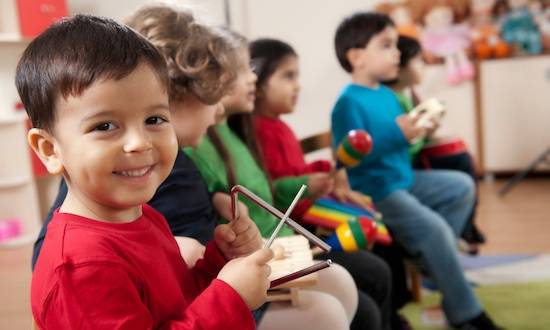
Understanding the behaviour of your pre-schooler
17 Dec 2015 | 2 min Read
Baby Chakra
Author | 501 Articles
The good news is that with her third birthday, the terrible two’s are officially over. Your child is now likely to be less self-centred, more helpful, more outgoing and friendly. She may even start seeing her mistakes. A preschool child also wants to please her parents and tries to imitate them. This puts an extra responsibility on parents to live right and provide role models of healthy and happy living.
At 4 years, your child will not be able to manage her ‘defiant’ feelings and may appear rude and may even swear at you. Often her bad behaviour is only to annoy you. Be calm and relaxed. But do not let her bully you. Teach her what is acceptable behaviour and what is not. Be firm and consistent. By 5 years, she will be better behaved.
Your child lets her imagination run wild, often playing games about relationships and the places that you have visited as a family. She may keep asking you all sorts of questions on different subjects: ‘Why does this happen?’ ‘Why?’ ‘How?’ ‘What?’
Children at this age may now start taking more interest in their genitals and play with them – which is not abnormal. They may ask why boys and girls are different from each other, or about how babies come into this world. Your daughter may also seem attracted to her father, just as her brother is probably enchanted by his mother.
The parents must understand that their child’s interest in playing with the genitals or, their attraction to someone of the opposite sex is normal. Questions related to sex must be answered in a matter-of-fact manner, without embarrassment and without giving unnecessary details. If you do not feel comfortable talking about sex, ask a friend or teacher to talk to the child.
Parents must not allow children to manipulate one parent against the other. When the parents retain their individual identities and continue to show love and respect for each other, children get the right signals from an early age. This helps them develop respect for human beings in general and the opposite sex in particular.
Source: Book – Guide to Child Care – by Dr R K Anand
Also read more about: The Helpful Guide to managing your young toddler’s behaviour, Understanding the behaviour of your pre-schooler
A


Suggestions offered by doctors on BabyChakra are of advisory nature i.e., for educational and informational purposes only. Content posted on, created for, or compiled by BabyChakra is not intended or designed to replace your doctor's independent judgment about any symptom, condition, or the appropriateness or risks of a procedure or treatment for a given person.
